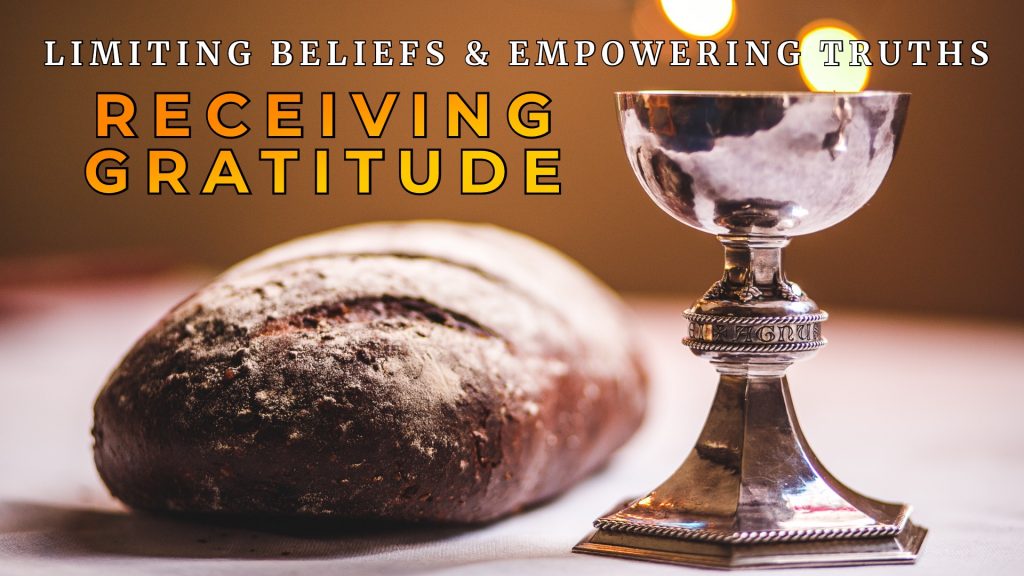Limiting Belief: I have nothing to be grateful for.
Empowering Truth: No, there are blessings to be found every day. (1 Thessalonians 5:18, Psalm 118:24)
We live in an amazing time. There has never been a time in history like this. There is unprecedented prosperity. Incredible advances in technology make our lives easier and more convenient. I can click a few buttons on Amazon and have a package delivered to my door the next day. We have cars, trains, and airplanes that can easily take us wherever we want. Advances in medicine help us to live longer. And if you are reading this from the United States, you have freedoms available to you that are not guaranteed in many parts of the world.
That does not mean we are not without our problems. We are affected by things like racism, COVID-19, and the political divide. There will always be challenges to face. We look back at the previous millennium that saw the flu pandemic, two world wars, the Great Depression, and the Cold War. And we can be certain there will be future challenges to face.
Focused on the Negative
There is good and bad. But the problem is that we are more often focused on the challenges in life than we are focused on the blessings in life. We have been given more than many who have come before, but we are more dissatisfied than ever. Why?
It goes back to consumer culture. The consumer mindset sows the seeds of discontentment to convince you that what you have is not good enough and that you need more. The goal of consumer culture is to create ever-increasing consumption. And you are not going to consume if you consider that what you have is good enough.
Then there is the endless negative news cycle. It is hard to find any good news in the “news.” It makes it seem like there is nothing good in the world. This makes it hard to remain positive and grateful.
Consequences of Ungratefulness
There are consequences of ungratefulness. And it creates a cycle that feeds itself. If the cycle remains unbroken, we will only become more ungrateful.
Debt
When you are unhappy with what you have, you will buy more. Oftentimes, you will be led to buy more than you can afford, which leads to debt.
Loneliness
When you fail to appreciate the people around you, it can push people away from you. It is easy to complain and criticize others. But that constant complaint does not make you a person that other people want to be around.
Hopelessness and Despair
If you have a hard time seeing anything good in relatively prosperous times, you will never see anything good in difficult times. The negativity will break you down.
Regret
There may come a day when you no longer have what you failed to appreciate. You will wish that you had enjoyed it more when you had it to enjoy. How much more is this true of the people in our lives?
Reclaiming Gratitude
Gratitude and contentment have nothing to do with what we have. Gratitude and contentment flow out from the heart. They come from faith and an abiding relationship with the Lord.
This week is Holy Week. This week, we remember the tremendous sacrifice of Jesus on the cross. There is nothing greater that we have been given than the love of God. It is easy to fail to appreciate this most wonderful gift.
During this week, we also remember the meal that Jesus shared with his disciples when he instituted the Lord’s Supper. One of the names that is given to this meal is the “Eucharist.” It comes from the Greek word “eucharistia.” It means “thanksgiving.” This meal is an experience of grace. It is not about what we do but what God does in us and through us. We receive the gift of his love, mercy, and forgiveness. It generates gratitude in our hearts.
It may not seem like we receive much. We typically receive a small wafer and a sip of wine that would hardly be considered a fine meal. It might not seem like we should get our fill.
But through this meal, God gives us satisfaction and contentment. He nourishes our souls. We are reminded that we lack nothing and that Jesus is more than enough. It cultivates gratitude to help us live free of the burden of chasing after all the things that the rest of the world thinks it needs. We move from a spirit of poverty to an abundant faith.


Leave a Reply